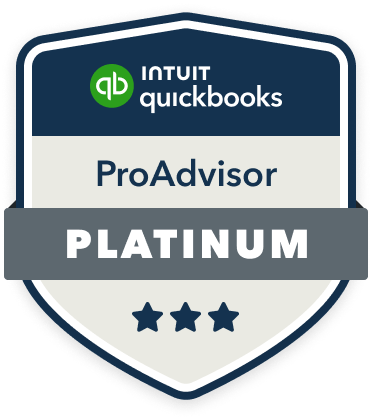What is a Health Savings Account (HSA), and why should you consider one?
A Health Savings Account (HSA) is a special type of savings account for people with a High Deductible Health Plan (HDHP). It allows you to save money for healthcare expenses while enjoying tax benefits. Contributions can be made by you, your employer, or even others, and the money in the account grows tax-free. The best part is that when you use the funds for qualified medical expenses, you won’t pay any taxes on them.
What makes an HSA worth considering?
- Triple Tax Advantage: Your contributions are tax-deductible, the money in the account grows tax-free, and withdrawals for medical expenses are tax-free.
- Flexibility: Funds can be used for a wide range of qualified medical expenses, including deductibles, copayments, and prescriptions.
- Portability: Your HSA goes with you, even if you change jobs or retire, so you never lose access to your savings.
- Long-Term Savings: Unused funds roll over year to year, allowing you to build substantial savings for future medical expenses.
- Retirement Benefits: After age 65, you can withdraw money from your HSA for non-medical expenses without having to pay the extra 20% tax that would normally apply to non-qualified withdrawals.
An HSA is a smart way to save on healthcare costs while taking advantage of significant tax benefits. It’s not just about covering today’s medical expenses, but also building savings for tomorrow’s needs.
What is a High Deductible Health Plan (HDHP), and why is it essential for opening an HSA?
A High Deductible Health Plan (HDHP) is a health insurance plan with higher annual deductibles and lower premiums compared to traditional plans. Essentially, it means you pay more out of pocket for healthcare services upfront, but you pay less every month for the insurance itself. For 2024, the minimum annual deductible is $1,600 for self-only coverage and $3,200 for family coverage, with maximum out-of-pocket expenses of $8,050 and $16,100, respectively.
To open a Health Savings Account, you need to have an HDHP. The HSA helps you save money for medical expenses by letting you put money aside tax-free. Since HDHPs have higher out-of-pocket costs, the HSA gives you a way to set aside money to cover those costs without paying extra taxes on them.
What is the “triple tax advantage” of HSAs, and how does it benefit you?
The “triple tax advantage” of Health Savings Accounts (HSAs) refers to three key tax benefits that make them a powerful tool for managing healthcare costs and saving for future medical expenses. Here’s how each part of the triple tax advantage works and benefits you:
- Tax-Deductible Contributions: Contributions to your HSA reduce your taxable income, thereby lowering your overall tax bill. So, for instance, if you contribute $3,000 to your HSA, your taxable income is reduced by $3,000.
- Tax-Free Growth: Any interest or investment earnings within your HSA grow tax-free, helping your balance grow faster over time.
- Tax-Free Withdrawals for Qualified Medical Expenses: When you use your HSA funds for qualified medical expenses like doctor visits or prescriptions, the withdrawals are not taxed, which saves you money.
These three benefits work together to help you save on taxes now, grow your savings more efficiently for future healthcare costs, and make medical spending tax-free. This makes HSAs a valuable tool for managing both current and future healthcare expenses.
What are the annual HSA contribution limits, and how can you avoid penalties for over-contributing?
The amount you or anyone else can contribute to your HSA depends on the type of HDHP coverage you have, your age, and the dates you become and cease to be an eligible individual. For 2024, if you have self-only HDHP coverage, you can contribute up to $4,150. For family HDHP coverage, the limit is $8,300. If you’re 55 or older, you can contribute an additional $1,000 as a catch-up contribution, allowing you to save more for healthcare costs. To avoid any penalties, it’s important to stay within these contribution limits. If you accidentally contribute more than allowed, make sure to withdraw the extra amount before the tax deadline to avoid any penalties.
What are qualified medical expenses, and what are the penalties for non-medical use of HSA funds?
Qualified medical expenses are healthcare costs that the IRS allows you to pay with your HSA funds tax-free. These typically include:
- Medical Care: Costs for diagnosis, treatment, prevention of disease, and other healthcare services.
- Prescription Medicines: Expenses for prescription drugs and insulin.
- Over-the-Counter Medicines: Costs for OTC medicines and menstrual care products.
- Medical Services: Payments to doctors, dentists, surgeons, and other healthcare providers.
- Medical Equipment: Costs for items like medical supplies, equipment, and diagnostic devices.
- Insurance Premiums: While most premiums aren’t qualified, there are exceptions, including premiums for long-term care insurance, COBRA, healthcare coverage during unemployment, and Medicare (but not Medigap) if you’re 65 or older.
For a complete list, you can refer to IRS Publication 502. (^2^)
If you withdraw HSA funds for non-medical expenses before turning 65, you’ll face a 20% penalty, and the amount will also be taxed as income. After age 65, you can use your HSA for non-medical expenses without penalty, but you’ll still owe income tax on those withdrawals. To maximize the tax benefits of your HSA, try to use it for qualified medical expenses whenever possible.
How do HSAs differ from other savings accounts like FSAs and HRAs?
| Feature | HSA’s | FSA’s | HRA’s |
| Ownership | You own it. The money stays with you, even if you change jobs or retire. | Your employer owns it. Unused funds may expire or stay with your employer if you leave. | Your employer owns and funds it. You lose access if you leave the job. |
| Eligibility | Must be enrolled in a High Deductible Health Plan (HDHP). | Available only if offered by your employer. | Available only if offered by your employer. |
| Contributions | By individual/employer; 2024 limit: $4,150 (individual), $8,500 (family); $1,000 catch-up (if you’re 55+). | Salary reductions; 2024 limit: $3,200. | Employer-funded only. |
| Rollover | The money rolls over every year and can even grow with interest. | Typically “use it or lose it,” though some plans allow a grace period or $610. | Generally doesn’t roll over; depends on plan design. |
| Portability | Portable; remains with the individual. | Not portable; forfeited upon job change. | Not portable; forfeited upon job change. |
| Tax Benefits | Triple tax advantage: tax-free contributions, growth, and withdrawals for qualified expenses. | Contributions are pre-tax, and withdrawals for qualified expenses are tax-free. | Reimbursements for qualified expenses are tax-free. |
| Penalties for Non-Qualified Use | Distributions will be added to Gross Income + 20% penalty (before 65). | Non-qualified use not allowed. | Non-qualified use not allowed. |
How can employers contribute to HSAs, and what should employees know about employer participation?
Employers can contribute to Health Savings Accounts (HSAs) by making direct contributions to their employees’ HSA accounts, either regularly or as part of a benefits package. These contributions are tax-deductible for the employer and help employees save money on healthcare expenses.
For employees, employer contributions are an excellent benefit because they are tax-free. This means you don’t pay federal income tax or Social Security/Medicare taxes on the amounts your employer adds to your HSA. The best part is that the money in the HSA account belongs to you, which means that even if you lose your job, the money will stay with you, and you can continue using it for qualified medical expenses. However, there is a limit to how much can be contributed in total each year. For 2024, the combined amount you and your employer can contribute is $4,150 for individual coverage and $8,300 for family coverage.
What happens to your HSA after death—can it be inherited, and what are the tax implications?
When you set up your Health Savings Account (HSA), picking someone to inherit it after you pass away is important. This person is called a beneficiary, and what happens to your HSA depends on who you choose.
- Spouse as Beneficiary: If you’ve chosen your spouse as the beneficiary, your HSA will be transferred to them and treated as their HSA. They can continue using it for medical expenses just like you did.
- Non-Spouse Beneficiary: If someone else is the beneficiary, the account will stop being an HSA, and the person inheriting it will need to pay taxes on its value. The amount they owe will be based on the fair market value of the HSA at the time of your death. However, the amount taxable to the beneficiary is reduced by any qualified medical expenses for the decedent paid by the beneficiary within one year after the date of death.
- Estate as Beneficiary: If your estate (your belongings) is the beneficiary, the value of the HSA will be included in your final tax return.
It’s important to consider your beneficiary choices carefully, as they can impact how your HSA is taxed and transferred after your death. Proper planning ensures your wishes are carried out and helps minimize tax burdens for your heirs.!
How can UTG help you navigate HSA compliance and maximize its benefits?
At USA Tax Gurus (UTG), we are experts in helping you get the most out of your HSA by ensuring you comply with all IRS regulations. Navigating the complex rules of contributions, eligible expenses, and exemptions can be tricky, but we’re here to make it easy. Our team will work with you to create a plan that meets all of your financial goals, whether you’re saving for medical expenses or aiming for long-term growth. We also provide expert guidance on beneficiary selection and ensure that your HSA is properly passed on to your chosen heirs with minimal tax consequences. You can have peace of mind knowing that UTG is managing your HSA efficiently and professionally.
Sources:
Source 1: Publication 969 (2023), Health Savings Accounts and Other Tax-Favored Health Plans | Internal Revenue Service
Source 2: About Publication 502, Medical and Dental Expenses | Internal Revenue Service


